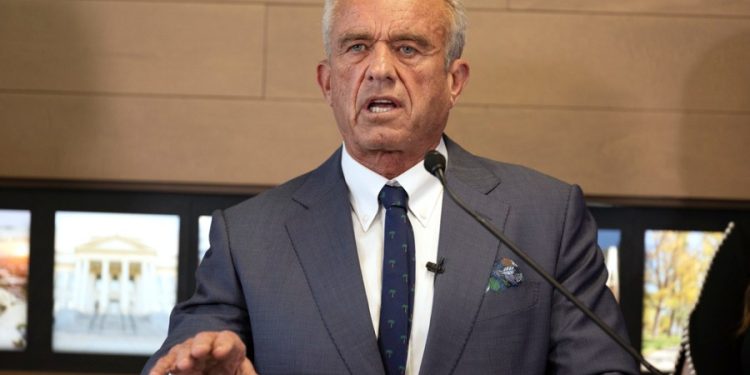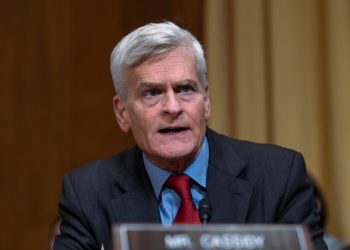Health and Human Services Secretary Robert F. Kennedy Jr. said Tuesday he’s on track to identify “interventions” that are “certainly causing autism” and possible ways of addressing them by September.
In April, Kennedy vowed to find the cause of growing rates of autism, calling it an “epidemic” that “dwarfs the COVID epidemic.”
President Trump asked Kennedy for a progress update during a Cabinet meeting Tuesday, saying, “The autism is such a tremendous horror show. What’s happening in our country and some other countries, but mostly our country. How are you doing?”
“We are doing very well,” Kennedy responded. “We will have announcements as promised in September, finding interventions, certain interventions, now that are clearly almost certainly causing autism. And we’re going to be able to address those in September.”
Kennedy has long claimed that environmental factors, or vaccines, are likely culprits behind the rising rate of autism diagnoses, arguing research to back this up has been blocked by federal authorities. He argued in April that autism should be prevented because autistic people are burdens on their family and society.
“These are kids who will never pay taxes, they’ll never hold a job, they’ll never play baseball, they’ll never write a poem, they’ll never go out on a date. Many of them will never use a toilet unassisted,” Kennedy said. “Autism destroys families.”
During the Cabinet meeting, Kennedy pointed to his oft-repeated evidence of environmental factors contributing to autism rates, noting how diagnosis rates have significantly jumped since the 1970s.
“So, there has to be something artificially causing this, meaning a drug or something. And I know you’re looking very strongly at different things, and I hope you can come out with that as soon as possible,” Trump said.
According to the Centers for Disease Control and Prevention, 1 in 31 children and 1 in 45 adults in the U.S. have autism, significantly higher than the 1 in 150 rate just a few decades ago. But according to experts, this is more likely due to autism detection improving since the diagnosis was first developed and the criteria broadening over the years. The first time someone was diagnosed with autism was in 1943.
“Rates of autism without intellectual disability, that is increasing faster than diagnoses of autism with intellectual disability, which shows that if that group that would have been missed in the past that is making up the larger portion of the increase in diagnoses,” Zoe Gross, director of advocacy at the Autistic Self Advocacy Network, told The Hill in June.















